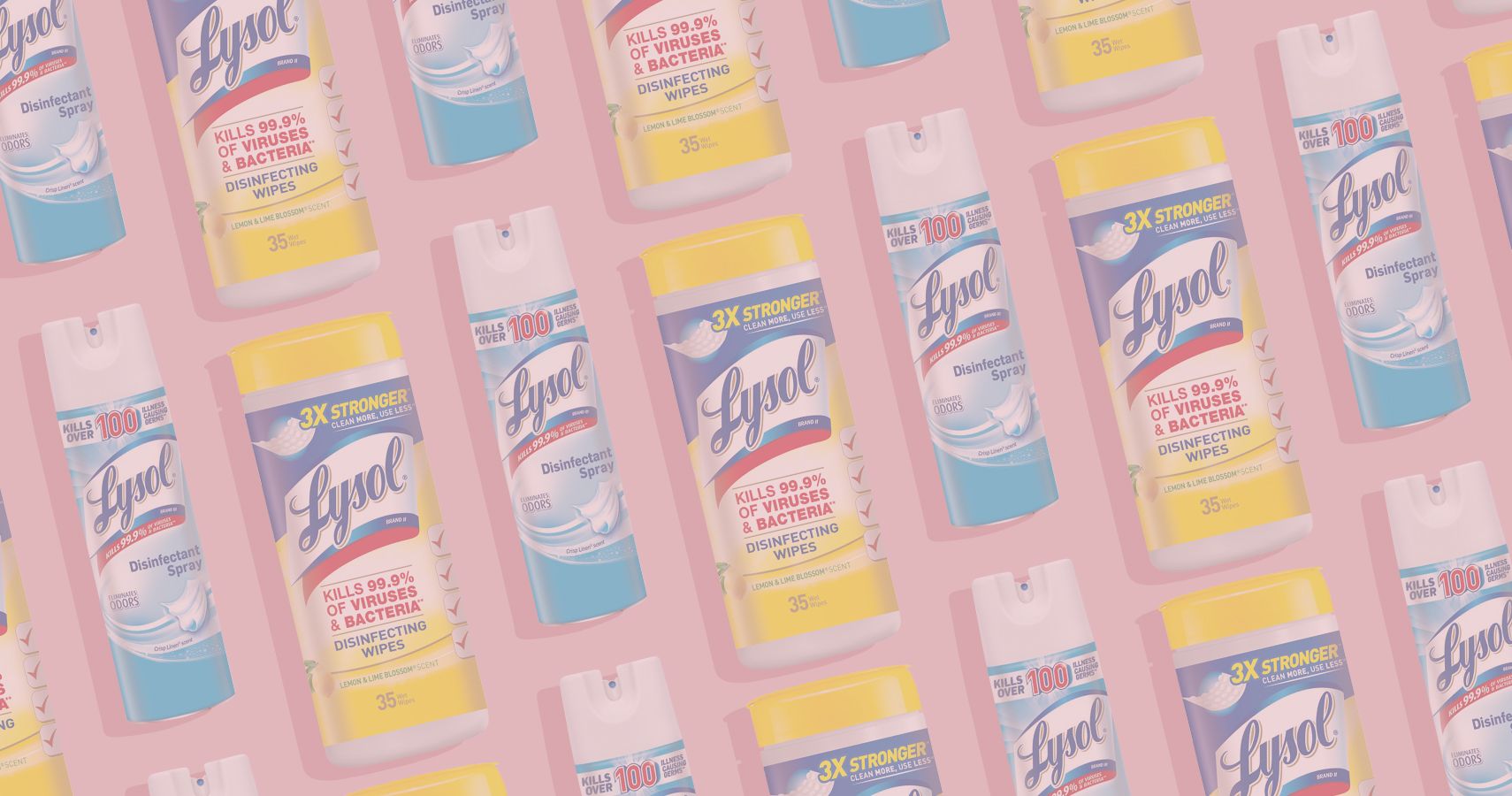Many of us were surprised and unprepared for the empty grocery store shelves we saw in the early days of the pandemic. As lockdowns were put into place, people began stockpiling things they felt were a necessity. Shelf-stable goods, sanitizing products, and, yes, even toilet paper were grabbed from shelves as soon as they were available. As manufacturers and distributers have worked to catch up with the demand, many things are now back in stock, but Lysol isn't one of them. What gives?
Why Is It So Hard To Find?
Don't worry, Lysol did not go out of business, but they are having a difficult time keeping up with demand. USA Today reports that in March 2020, sales of aerosol disinfectants increased by 343% and multipurpose cleaners by 166% from 2019. In an industry where purchasing rates remain fairly stable until cold or flu season, manufacturers were unprepared for the sudden increase in demand. Patrick Penfield, a professor of supply chain practice as Syracuse University spoke with USA Today on the shortage in cleaning supplies. "They don't have enough ingredients. They don't have enough capacity."
This inability to keep up with demand remains true nearly eight months later as we near the end of 2020. Sanitizing wipes and sprays remain hot commodities as the pandemic continues, and Lysol products are particularly desirable. In July 2020, the Environmental Protection Agency (EPA) approved two Lysol products for use against the coronavirus, Lysol Disinfectant Spray and Lysol Disinfectant Max Cover Mist. This only fueled the desire for these products, and Lysol has struggled to keep their products on shelves.
CNBC explored why high-demand products like toilet paper have been able to increase production to meet demand while cleaning products like Lysol are still unable to keep up. Multiple cleaning product manufacturers weighed in on their struggles. Benno Dorrer, CEO and chairman of Clorox, revealed that they had increased production of disinfectant products 40% by May 2020, but demand had risen 500%.
Seventh Generation's senior director of the supply chain Jim Barch lamented their issues in producing disinfectant wipes, citing competition with manufacturers of personal protective equipment (PPE). Some ingredients used in disinfectant products are also used to make masks, medical gowns, and medical wipes. Raw material shortages are limiting how much these companies can increase production, a problem toilet paper manufacturers don't face.
When Will It Be Back On Shelves?
There is no definitive date for when Lysol, or other disinfectant products, will be consistently back on the shelves. Barch predicts the return of disinfectant wipes will be a "much longer road for us... we really feel that one might take us into 2021." Since the raw material shortage and competition with PPEs prevent ramping up production, they have no choice but to continue to churn out as much product as possible until demand decreases to meet supply.
The Federal Trade Commission (FTC) encourages you to be wary of scammers creating fake Clorox and Lysol websites. On November 5, 2020, the FTC announced a complaint "against defendants who are using fake websites and real product images" to trick shoppers into thinking they are purchasing brand-name cleaning products. Visit their website to learn tips for avoiding a scam.
Sources: usatoday.com/clorox-lysol-shortages, usatoday.com/lysol-first-epa-approved, cnbc.com, consumer.ftc.gov
